Chi siamo
JAGNE CARE FOUNDATION
The Jagne Care Foundation is the product of a Quest to address persistent undesirable and recurring conditions with regards to people living in rural Gambia, people who are underprivileged to meet the requirements of the Human
development indices. (HDI). As a people who are also entitled to the fundamental human rights and privileges as established by the league of nations and the United Nations Charter on Human rights and privileges.
The Gambia: A Profile
Official name: The Republic of the Gambia
Capital City: Banjul (35,061). Banjul is also the Port City
Location: Gambia is located on the west coast of Africa between latitude 13 and 14 degrees north and 13 and 17 degrees west. The Gambia is a virtual enclave in the Republic of Senegal. The country is surrounded by Senegal on North, East and South.
Total Area: 11,300 km2. The Gambia is the smallest country on mainland Africa.
Population: 1,360,681 (2003). The Gambia is one of the densely populated countries in West Africa. More than half the population is under the age of 18 years.
Climate: The climate of the Gambia is tropical with distinct dry and wet season. The dry season is between November and May. The dry season weather in the Gambia is influenced by the northeasterly dry winds locally called Hamattan from the Sahara. Temperatures in the cool dry season vary between 70oF (21oC) and 80oF (27oC) with relative humidity between 30% and 60%. The wet season is in the summer months beginning June until October. Mean annual rainfall ranges between 1000mm in the southwest to less than 800mm in the northeast. Over 90% of the precipitation between occurs July and September.
Terrain: The topography of the Gambia is dominated by the River Gambia, which runs east to west through the entire length of the country. The terrain is dominantly floodplain flanked on both banks by low laterite hills. Over 78% of the Gambia is below 20 meter above sea level and nowhere in the Gambia is elevation greater than 60m.
Natural Resources: With no commercially viable mineral resources, land and water resources are central to Gambian life. Agriculture (cropping and livestock husbandry) remain the major provider for most Gambians engaging over 70% of the active population and contributing over 25 % of the GDP. More than 80% of domestic energy comes from wood fuels. Expansion of croplands, overgrazing, wildfires and uncontrolled wood collection have reduced woodland area from about 70% in 1960s to less than 9% in 2000.
The River Gambia and the tributaries are central to the Gambia’s water resources. Running the entire length of the country the river provides vital socioeconomic, cultural, scientific, aesthetic and environmental values. Since the arrival of Europeans in 1450s, the River Gambia has been a major trade and transportation route to the African hinterland, transporting everything from bee-wax, Ivory, iron, gold, slaves to groundnuts and ecotourists. Since 1980s river transportation has been dominated by passenger traffic across the river. Irrigation agriculture (tidal or mechanized) is the highest user of the river water. Western Gambia in general and the urban centers in particular depend entirely on groundwater resources for domestic and industrial use.
The country’s geographic location combined with the extensive wetland systems result in a wide range of habitat types supporting diverse plant and animal species. Approximately 530 plant species, 108 species of mammals, and over 540 bird species (a third of these birds are Palearctic migrants) are known to exist in the Gambia. The sheltered coastline is known to be breeding and nursery grounds for a diverse number of fish and marine wildlife.
Industries: Manufacturing industry in the Gambia includes ground processing, soap making Banjul Breweries, cottage industries and a foundry. There is also cement bagging and bicycle assembling facilities. There is also the small-scale light industry (furniture, fish processing, metal works) and carving. Tourism in the Gambia is second to only agriculture in its contribution to the GDP. With most of the tourist visiting the country for the beaches, fishing and birding excursions, the coastal and marine fisheries are particularly important. Increase in tourism over the past 30 years has resulted in the development of over more than half of the open coastline.
Natural Hazards: Most frequent natural hazards in the Gambia are wild fires, droughts, coastal erosion, flash floods, dust storms and grasshopper outbreaks. Since 1970 recurring droughts have been experienced throughout the country along with increased incidence of wildfires, and dust storms. Since mid 1980s incidence of dust storms lasting more than three days have become annual events. Over the past 20 years sections of the coastline have disappeared between Banjul and Tanjeh causing millions of Dalasi in property damage. More recently flashfloods have become a annual occurrence in many parts of the country causing extensive crop and property damage
Based on this information, the people of the country are either living on the edge or below the poverty line which makes it difficult for citizens to make ends meet, and therefore, the extended family systems have no choice but to allow excessive dependency upon the privileged few. And as such , Rural urban drift became an unending phenomenon not withstanding triggering the illegal migrations recently encountered as a result of poor political governance punctuated by a type of dictatorship never before seen in the Gambia.
It is on this premise that this foundation came into being to help in the alleviation of poverty and some of its underlying causative factors, such as inadequate income for the sustenance of standard education, good health and sustainable income capacities. ( IT IS ALL ABOUT).
Who so ever saved a life, it would be as if he /she has saved the lives of an entire people..
The Jagne Care Foundation is a non-profit, non-governmental and faith-based humanitarian organization whose mission is to empower the poorest rural people in The Gambia to lift them out poverty as another level of glorifying their dignity. We believe that the eradication of poverty is not only a matter of conscience; it is a prerequisite for the security and prosperity of humanity at large and that freedom from poverty is a fundamental human right.
The Foundation’s primary purpose is to undertake manageable and sustainable projects that can make a real difference to individuals and communities enabling them to improve the qualities of their lives. We assist people in need to reduce dependence on humanitarian aid and facilitate their transition from total dependence to sustainable self-reliant and long-term development opportunities.
"Overcoming poverty is not a gesture of charity. It is an act of justice. It is the protection of a fundamental human right, the right to dignity and a decent life."
OUR MISSION: To provide sustainable aid in terms of education and livelihood systems to many Gambian people living in and around the Gambia by removing all the administration costs that most charity organizations do charge for.
OUR VISSION: A liberated future Gambian leaders who would be able to remove the constraints that hinder their abilities to prosper in terms of academics and socio-economic advancement, that which shall enhance productive and transformative changes in our Gambian society.
Objectives:
- To provide direct and immediate humanitarian assistance, including food and non-food items, and cash assistance where necessary for the survival of vulnerable populations.
- To provide relief during natural disasters.
- Working tirelessly towards alleviating poverty by providing microfinance.
- Enhance sustainable livelihood systems to the needy by breaking the cycle of poverty which plagues them.
- Providing educational opportunities to orphans and destitute children.
- Medical care to those in need.
- The gift of sight is the greatest gift of all. To provide treatment and eye care to those in the Gambia's poorest communities Without any discrimination.
- To connect institutions, communities, families and individuals that enable people to help themselves and each other
- Working at 0% administrative costs thus ensuring every penny donated goes to those in need.
Our Projects : Projects form the essence of Jagne Care Foundation. Our team is dedicated to bringing expertise, funding and hope to people living in poverty in our target area.( Activities include: education, Health, Agriculture/horticulture, small business entrepreneurship, poultry keeping and skills for women groups).
Scope : We actively search for projects that normally would remain invisible to potential donors. This is a barrier we intend to help the beneficiaries to overcome.The scope of our projects ranges from Education, Health care, Child care, Agriculture, Community Development, Economic Development, Emergency Relief, Migrants / Refugees, and Infrastructure. Project needs differ because not all communities face the same problems. If we would focus on only one area of aid, we would be blind to other urgent needs within a community.Our goal is to effectively help in fields where help is really needed and to adapt our support to addressing the priority problems of the beneficiaries.
Screening : Every potential project is screened during a period of thorough research and investigation to ensure it meets our criteria for project effectiveness, cost-efficiency, reliability/trustworthiness, and principles of non-discrimination and equality.
Funding : For projects that meet our criteria we will seek for funding and ensure their effective implementation within a given time frame.. Our strict procedures shall guarantee sponsors that we make their funds count productively, and are used in the ways they were intended for.We remain closely in touch with all project leaders and make regular project visits. We actively stay involved in our projects and keep everyone informed through project reports, newsletters, face book page updates and social media.
Monitoring and Evaluation : The board members shall all in their various capacities be entrusted with the continuous monitoring of project activities to ensure that objectives are met within stipulated time frames as and in accordance with the work plans laid for implementation.The President/CEO shall have the latitude to appoint external expatriates to conduct an evaluation exercise on periodic basis. Nonetheless board members shall have the mandate to express concerns were procedures are may not be in line with constitutional prerogatives. And were concerns reflect National peace and security, then a halt shall be made for redress.
TRANSITION TO NORMAL ADMINISTRATION: Given the hope that the foundation shall achieve its purposes, all beneficiaries shall be given the mandate to be linked to any person in the name of a donor or a helper/Samaritan for further support in terms of education and socio-economic enhancement. whiles this idea remains in practice, the foundation shall remain positive towards the acceptance of new ideas and innovations from who so ever is willing to give support for the advancement of the foundation.
MEET OUR TEAM
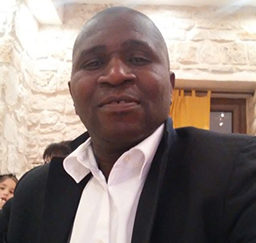
Bakary Jagne
Founder/President and International Coordinator - JCF
Bakary Jagne is the Founder and President/International Coordinator of JCF, he lives in Italy. He graduated from high school then further holds a Diploma in Rural Community Development from West African Community Development Training Centre –WACD-TC. Mr. Jagne as part of his educational background opted Certificate in Community Development Foundation, Certificate in Human Relation and Development, Certificate in Economics and Development and Certificate in Management and Development at WACD-TC. Mr. Jagne has undergone in series of training both national and international on Governance, Fundraising, Project Development, Management, Planning, Implementation, Monitoring, Evaluation, and Reporting. Mr. Jagne has a very unique and specific vision; he has a high level of training on Home base care, Reproductive Health issues and other health harshest issues, various development sectors of agriculture, Environment Protection and management, Risk prevention and management, Child Protection and nutrition, etc. Mr. Jagne has had extensive cross-functional experience in all sectors of development. Specialist with over 10 years of experience working with various development groups/organizations in the Gambia, some parts of Africa and in some parts of Europe. He has more than 10 years of experience in the management of programs and coordinating social services/civil society. And he is a philanthropist.
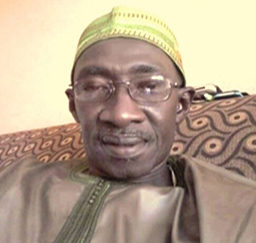
Pa-Ansu Sanneh
National Coordinator and secretary to the Board - JCF
Pa-Ansu Sanneh is a well-seasoned development worker with a high sense of volunteerism in theory and in practice. He graduated from high school then further graduated with a National certificate Diploma in integrated rural development studies from the Rural Development Institute in the Gambia. And then later he attended the City University of New York where he graduated with BSc Honors In liberal Arts and the Sciences. Pa-Ansu began his career as a surveyor with the program planning monitoring and evaluation unit of the Ministry of Agriculture now known as the Department of planning. It was from here that he drifted into the field of community development and gained specialized skills in project planning and management. He had worked with government departments, NGOs and international organizations like the United Nations development program (UNDP) at home and abroad. Mr. Sanneh has served as an international U.N. Volunteer on a peacekeeping development mission in Tanzania on the border with Burundi and has for a second time served as UNV Specialist Community exchange worker for a poverty eradication project in Malawi. He later returned Home in Gambia where he served as national U.N Volunteer designated as regional coordinator. He piloted the National Volunteers Service Center project funded by the UNDP at the behest of the Gambia government. Mr. Sanneh ended up becoming a designate Regional outreach coordinator in charge of facilitating and monitoring all UNDP funded and or supported projects in the whole of The Gambia. He has over 30 years of working experience and has always excelled at satisfaction in all spheres of work. During these periods under review, Mr. Sanneh has also undergone several in-service training courses and gained certificates to that effect. Sanneh is a veteran development worker up to this day.

Hoja Mbye Jagne
Deputy National Coordinator and Head of Education – JCF
Hoja is a well equipped trained teacher. she went through the normal education system and graduated from senior secondary school she works with the different organizational groups in the scholastic. The Gambia Red cross society, peer health education, etc, then she went to further her education at The Gambia college was she obtained her primary teacher certificate (PTC). Hoja taught in a different primary school in the Gambia both in the province and in town. she obtains several certificates in jolly phonics, the national language, and sign languages. she also obtains her higher teacher certificate (HTC)where she majored in Mathematics and Science.she then moves to the upper basic sector to teach. Hoja has been involved in many community events such as sensitization on sanitation, and health-related issues. she has over 10 years of teaching experience. Teaching is her profession up to date.
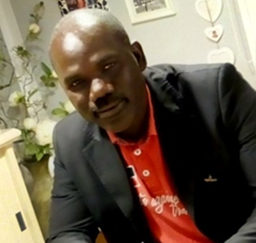
Alieu F Bojang
Finance Director and Head of security - JCF
Alieu is the Finance Director and Head of security. He went through the normal education system and graduated from the senior secondary school and further holds a Diploma in business Management and Accounting. Alieu is a well-trained security officer and a youth activist for more than 25 years and went through the National Youth Service Scheme. He works with series of community groups both national and international as a finance manager. He underwent in numbers of training on finance management, control and implementation, budget preparation, fundraising, and business planning. Etc. Alieu is also a member of the International Police Association (IPA), Therefore Alieu is up to date security officer and a social worker.
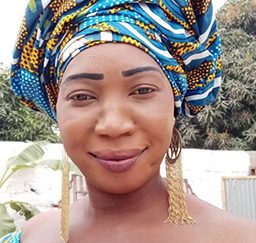
Kaddy Samateh jagne
Deputy Finance Director
kaddy samateh jagne Coordinator CRR North kaddy went through the normal education system where she graduated from high school then further holds a high certificate on secretarial and accounting from Cannan Technical institute. she has a much experience in community sensitization on HIV and AIDS and community nursing. she also undergone training, got a certificate on business Planning and Management of Income Generating Activities. she is presently a member of many youths and sports committees.
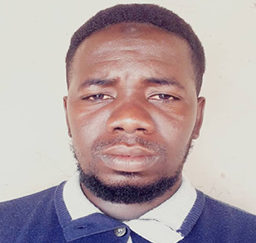
Buba Manneh
Regional coordinator LRR - JCF.
Buba Manneh is the Coordinator LRR. Buba went through the normal education system where he graduated from high school then undergone a construction training course at Gambia Technical and Training Institute (GTTI) holds a Certificate. Buba has undergone in so many training in the area of youth group formation and development, Project and programs development, management, planning, implementation, monitoring, and evaluation. Buba is currently the youth district chairperson Kiang East.
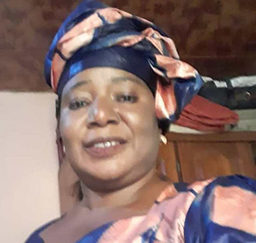
Fatou NS Sanneh
Regional coordinator NBR and Adviser - JCF
Fatou is the Regional Coordinator and Adviser. Fatou, went through the normal education system and graduated from the senior secondary school and further went through so many training certificates course and holds a Diploma in Community Development. Fatou is a trained Community Development officer and works as the Community Development Assistant for more than 27 years and she is supervising so many projects in the communities. Fatou has undergone so many pieces of training on Project Development, project Planing, project implementation, project monitoring, and evaluation. Fatuo has facilitated and participated in so many project implementation, monitoring and evaluation. Fatou, have high knowledge of community development and she is a mother of all.
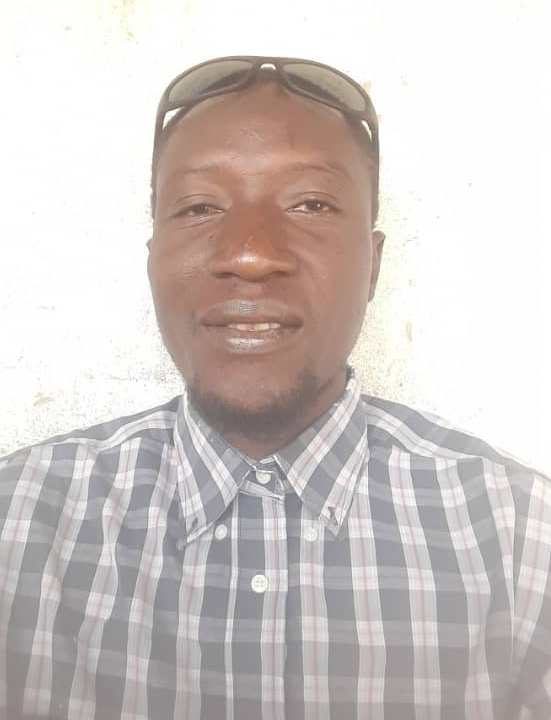
Alhagie Keita
Regional coordinator CRR - JCF.
Alhagie Keita is the Coordinator of CRR South. Alhagie went through the normal education system where he graduated from high school. He holds a Certificate in sales and marketing, certificate in information Technology and further holds a Diploma in Marketing and advertising and advance Diploma in Marketing, Programming, and Advertising. Alhagie has undergone so much training in the area of youth group formation and development, Project and program development, management, planning, implementation, monitoring, and evaluation. He works as the Regional Coordinator, Farmer's clerk, and also work with NACOFAG. Alhagie is the current chairperson Jarreng Village Development Committee.
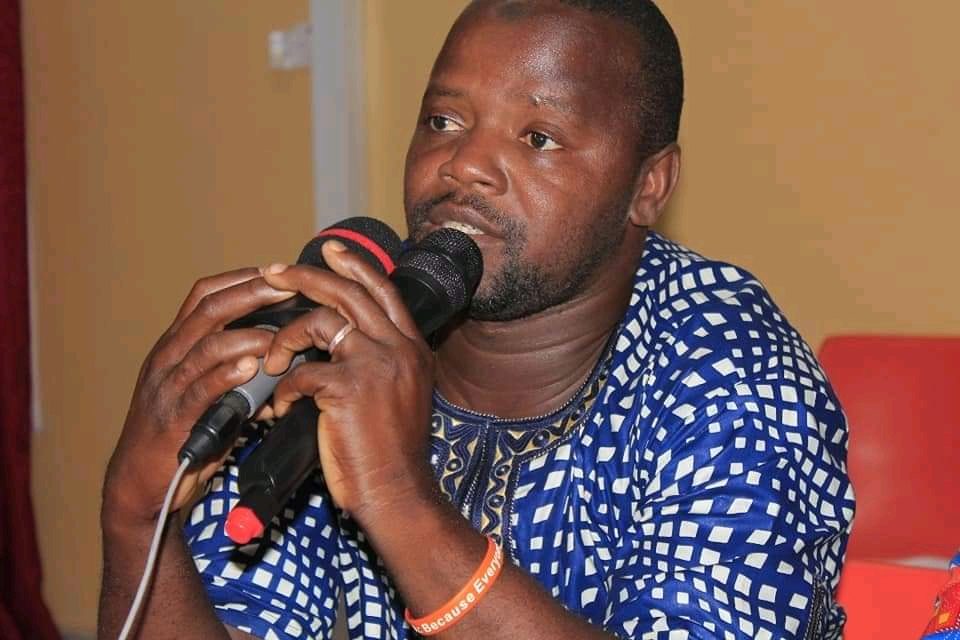
Fabakary Sanneh
Regional coordinator URR - JCF.
Fabakary is a well versatile trainer in youth and children development. He went through the normal education system and graduated from senior secondary school. Fabakary further obtained his Higher National Diploma in Development Studies and Diploma in Commonwealth Youth work. He is also a trained youth counselor, a trained mentor, and a trained business coach. Fabakary obtains several trainings and certificates in youth, children, women, and community development. Fabakary Sanneh has been involved in so many community awareness sensitization activities such as sensitization on climate change mitigation and adaptation, vegetable production, child rights, youth back to farm, Drug and substance Abuse, Project planning, and its sustainability, Entrepreneurship, sanitation, and health-related issues. He has over 15 years of community work experience. Community and sports administration is his profession up to date.
